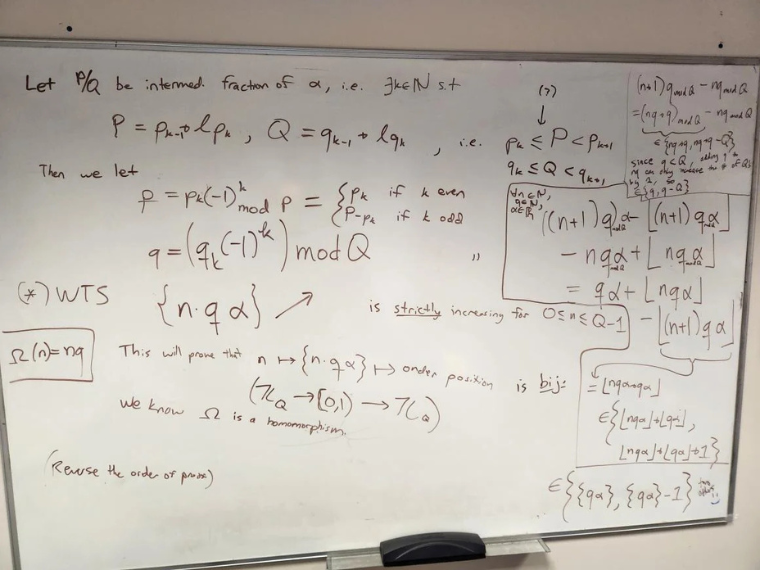Student Project Profile
Mathematical Justifications for Musical Scales
Project Title
Mathematical Justifications for Musical Scales
Faculty Mentor(s)
Project Description
Project Description:
There is a vast range of scales (and similar structures) in musical cultures across the world. Mathematical techniques have long been used to construct scales, and they can provide insight for questions such as why so many scales have particular numbers of pitches (e.g., 5, 7, and 12). In my project, I have researched different proposed criterions of optimality for certain classes of scales. Specifically, I use a framework formulated by my faculty mentor, Dr. Chris Marx, that views scale pitches as points on a circle. We have reworked old proofs that certain criteria for optimality are equivalent to each other, and we have proven new facts about these optimal scales.
Why is your research important?
The work I have done reorganizes and brings together existing literature with cleaner terminology, notation, and proofs. Moreover, it does not rely on more advanced concepts that are found in very recent mathematical music theory. Also, I have been able to contribute some new musical insights from a more practical level, such as a discussion about the relative sizes of steps for scales with two step sizes.
What is your favorite aspect of the research process?
I am most fascinated by the fact that each mathematical definition of "optimal" scales has a different musical implication. Sometimes, the connection between two conditions is clear on the level of musical intuition, but other times it's just a bunch of equations and I can't quite wrap my head around why the two properties accompany each other. As for the research process in general, it feels awesome to write a proof that I can't find in any existing papers or books. I especially like that much of it depends on techniques I learned in classes such as Harmonic Analysis
How has working with your mentor impacted the development of your research project? How has it impacted you as a researcher?
It has felt empowering to work with Prof. Marx as a mentor because while I have often gotten to choose which directions to go in and what questions to pursue, he is able to provide good suggestions and guidance on what might be mathematically fruitful.
How has the research you’ve conducted contributed to your professional or academic development?
I am also a music composition major, so I have always wanted to do a project that combines the mathematical skills I've built with my music-theoretical curiosities. Also, it has made me eager to use a wider variety of scales in my music. If I'm writing so much about them in the abstract, I might as well enjoy them with my ears too!
Students

Jake Berran ’24
fourth-year- Major(s):
- Mathematics, Composition
